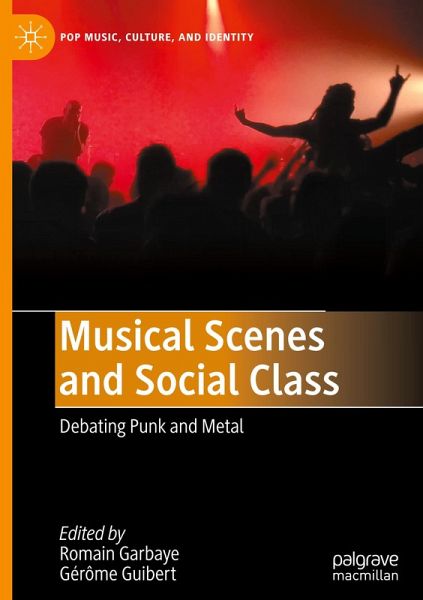
Musical Scenes and Social Class
Debating Punk and Metal
Herausgegeben: Garbaye, Romain; Guibert, Gérôme

PAYBACK Punkte
49 °P sammeln!
Early analysts of both punk and metal have shown their continuing popularity for segments of the public who were often considered in the 1970s and 1980s as "losers of globalization" despite the level of fragmentation of these scenes, the diversity of their audiences' backgrounds, and their constant evolution and re-invention. This volume aims to stimulate and contribute to debates on social class and economic and cultural change, on one side, and punk and metal, on the other, through international, contemporary and historical approaches, mainly focused on Britain and France.












